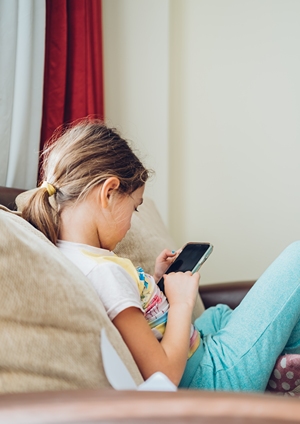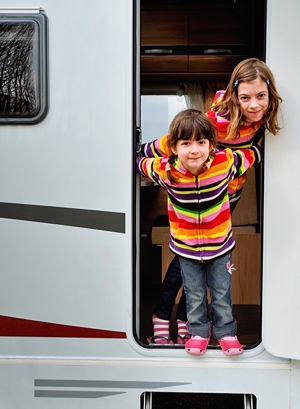12 Tips for Talking to Kids About Addiction
Anybody may be impacted by the complicated illness of addiction, regardless of their age, background, or status in society. Addiction is frequently linked to substances like drugs and alcohol, but it can also entail activities like shopping, gambling, or using technology.
To promote awareness, eliminate stigma, and offer support, parents and other caregivers must have candid discussions about addiction with their kids.
Addiction may significantly affect people individually, in families, and in communities. Numerous unfavorable outcomes, such as money troubles, relationship dissolution, legal troubles, and health difficulties, may result from it. Talking to your kids about addiction in an honest and open manner will help them grasp the dangers and repercussions of substance misuse and addictive behaviors.
In order to provide your children with a secure and encouraging atmosphere in which to learn about addiction and acquire the skills necessary to make wise decisions, we will look at some suggestions for talking to kids about addiction in this book.
Get Started Earlier and Stay Open
Talk to your kids about addiction from an early age, using language and examples that suit their developmental stage. They can voice worries, pose inquiries, and look for direction in a secure environment that is created via open conversation. Starting early will allow you to build a foundation of open communication and trust that will be beneficial as they mature.
Use Straightforward and Genuine Words
Refrain from sugarcoating the realities of addiction or use euphemisms. Describe addiction as a sickness that impacts the brain and has potentially dangerous effects. Adopting frank and transparent language prevents misunderstandings and helps kids realize how important the matter is. It’s critical to be straightforward and refrain from using phrases that might downplay how serious an addiction is.
Address Frequently Held Myths
Dispel myths regarding addiction, especially believing it’s a moral failing or a decision. Explain that addiction is actually a health condition that needs to be treated and supported. Many individuals have false beliefs about addiction, frequently linking it to moral deficiencies or a lack of self-control. Dispelling these myths and emphasizing that addiction is a complicated illness, including biological, psychological, and external factors, is needed.
Tell Personal Stories If Appropriate
If you or anyone you know has battled addiction, think about sharing your stories in a polite and age-appropriate manner. This might help in children’s comprehension of the difficulties and healing process. Telling personal stories to kids can help you establish a stronger connection with them and educate them about the effects addiction has on people. As kids see that healing is possible, it may also inspire and give them hope.
Talk about the Symptoms and Signs
Teach your kids about the symptoms and early indications of addiction, such as alterations in mood, behavior, and interpersonal connections. If they see these symptoms in themselves or others, urge them to get in touch with you. Children who are aware of the distinctive symptoms and signs of addiction are better able to recognize any issues early and promptly seek assistance. It’s necessary to provide a secure and encouraging atmosphere where kids may talk to you about their worries without worrying that you won’t judge them.
Stress on the Value of Healthy Coping Strategies
Creating appropriate coping strategies is crucial to avoiding addiction and preserving general well-being. Instruct your kids on effective coping skills for handling stress, emotions, and obstacles. This might involve engaging in games, hobbies, and physical activity, as well as spending time with loved ones and asking for help from responsible people. You are giving them the ways they need to deal with life’s obstacles in a constructive and good way by teaching them these abilities.
Address Discrimination and Stigma
Face the stigma and unfavorable preconceptions around addiction. It’s critical to erase unfavorable perceptions and advance tolerance and acceptance of those who are battling addiction. Stress the fact that addiction is a curable illness and that those who are in recovery should be respected and given assistance. Getting treatment for an addiction can be seriously hampered by stigma and discrimination.
Motivate Help-Seeking
Teach your kids that if they or somebody they know is experiencing addiction, it’s OK to get assistance. Give them resources and the phone numbers of nearby treatment facilities, such as depression treatment centers. It’s crucial to let kids know that they won’t be alone or that there are tools available to support them since asking for help is a brave step.
Talk About Options for Treatment
Talk about the many forms of addiction treatment that are available, such as support groups, medication-assisted treatment, and therapy. Tell individuals who are battling addiction that there’s hope and that rehabilitation is a journey. Making educated judgments about getting assistance can benefit kids and their families when they are aware of the various treatment options available. It’s critical to stress that recovery is a process and that those who are battling addiction have hope.
Promote Healthy Relationships
Encourage wholesome friendships and familial ties. Encourage your kids to interact with good, encouraging individuals when they can. Good connections can be very important in reducing the risk of addiction and enhancing general well-being. Children should be encouraged to surround themselves with uplifting and encouraging people who can provide them with direction, inspiration, and a sense of belonging.
Talk on the Impact of Peer Pressure
Discuss the impact of peer pressure, including the negative decisions it might cause. Encourage your kids to speak out for what they believe in and to be aggressive. Young people are susceptible to the strong influence of their peers. Thus, it’s critical to teach kids how to deal with these circumstances. In order to enable kids to make healthy decisions in the face of peer pressure, support them in building strong self-esteem and assertiveness skills.
Provide Continued Assistance
As your kids grow and mature, never stop encouraging and supporting them. Try to be there when they want you to be available to listen and to support. Providing continuous assistance is crucial in assisting kids in overcoming the obstacles associated with addiction and recovery. Be a comforting, guiding, and encouraging presence for them.
Conclusion
Addiction is a condition that can be treated as crucial. Addicts can overcome their addiction and have happy, healthy lives with the correct help and care. With these tips, you can provide your kids with the knowledge and skills they need to make wise decisions by having an open discussion with them about addiction.










